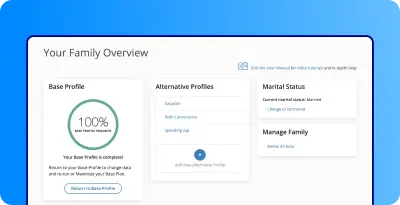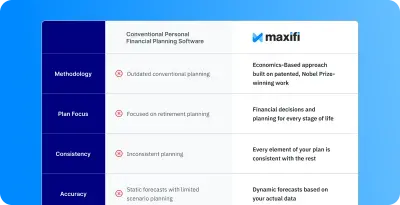Financial Power of Attorney
A financial power of attorney (POA) is a legal document that authorizes someone you trust to manage your money and property on your behalf. It can cover everyday tasks like paying bills or larger transactions like selling real estate. Depending on the type, it may last temporarily or continue after incapacity.
Creating a financial power of attorney is a critical component of comprehensive estate planning that protects you during periods of incapacity or unavailability. Without proper POA documentation in place, family members may face costly and time-consuming court proceedings to gain authority over your finances during medical emergencies, extended hospitalizations, or cognitive decline. The flexibility of POA documents allows customization for specific situations, from temporary travel needs to long-term incapacity planning, with various structural options including immediate versus springing activation, single agents versus co-agents for oversight, and broad versus limited authority. The choice of agent and document structure significantly impacts both convenience and protection against potential financial abuse, making thoughtful planning essential.
This guide explores what financial power of attorney means, the legal authority it grants, different POA types and their activation triggers, step-by-step setup procedures, important considerations for Medicaid planning and tax matters, safeguards against POA abuse, and common questions about signing authority, bank acceptance issues, and revocation procedures. Whether establishing incapacity protection, planning for extended absence, or ensuring smooth financial management during life transitions, understanding these concepts provides essential context for discussions with estate planning attorneys and informed decision-making about your financial future.

Key Takeaways
- Financial power of attorney authorizes an agent to manage finances and property during your lifetime including banking, investments, real estate transactions, and bill payment on your behalf
- POA expires immediately upon death with the executor named in your will assuming authority at that point, not the POA agent
- Durable POA continues through incapacity while general POA terminates if you become incapacitated unless specifically designated as durable
- Springing POA activates only upon incapacity (typically certified by one or two physicians) providing protection against premature use but potentially causing delays
- Agents have fiduciary duty to act in principal's best interest including keeping accurate records, avoiding conflicts of interest, and maintaining asset separation
- IRS requires separate authorization for tax matters through Form 2848 or Form 8821 even if POA states agent can "handle taxes"
- Most states require notarization and some require witnesses for POA validity, with real estate POAs often requiring recording with county land records
- Co-agents provide oversight and reduce abuse risk though joint authority requirements can cause delays compared to agents with several authority acting independently
- Successor agents serve as backups if primary agents cannot serve due to death, incapacity, or unwillingness to accept the role
- Thoughtful agent selection and appropriate safeguards protect against potential misuse including options like co-agents for oversight, reporting requirements, or successor agents as backups
- The Uniform Power of Attorney Act has been adopted by 31 states and Washington DC as of 2024, with variations in specific provisions
- Medicaid planning requires careful attention to POA provisions as gifts or transfers made by agents affect eligibility due to 5-year look-back period
What is a Financial Power of Attorney?
A financial power of attorney (POA) gives another person (often referred to as the agent) the legal authority to act on your behalf (the principal) in financial matters, including money and property. This can range from paying bills and managing bank accounts and investments to handling taxes or real estate transactions.
Creating a financial POA is an important part of incapacity planning. If you become unable to make decisions due to illness or injury, the person you've named can step in to keep your finances in order. Without a POA in place, your family may need to go through a court process to gain this authority. Financial POAs can also be used when you are not physically present to sign important paperwork.
A financial POA expires immediately upon the principal's death. It is only used for giving authority to make financial decisions while a person is alive and after death, an executor who is named in the principal's will takes over.
What Power Does a Financial Power of Attorney Have?
The authority outlined in the POA varies between people's situations. It can be fairly broad, covering lots of different financial responsibilities, or the scope can be very narrow, limited to only very specific duties.
The agent can legally manage the principal's finances and property, make all financial decisions, and conduct all financial transactions that are within the scope of the agreement. However, they cannot do anything not specifically stated under the power of attorney. They are legally obligated to make decisions that align with the wishes of the principal, but they do have full authority to make autonomous decisions until their authority is challenged or revoked in a court of law. Agents have a fiduciary duty to act in the principal's best interest, keep accurate records of all transactions, avoid conflicts of interest, and keep the principal's assets separate from their own. The principal (or concerned family members) can request an accounting of the agent's activities at any time.
Important Tax Considerations: While a financial POA may state that the agent can "handle taxes," the IRS typically requires separate authorization (Form 2848 or Form 8821) for an agent to file tax returns, represent you in audits, or communicate with the IRS on your behalf. If tax matters are important, ensure your POA specifically addresses this and consider filing the appropriate IRS forms.
Types of Power of Attorney
A financial power of attorney is just one of the many kinds of POA. There are several different classifications of POA, each designed to be implemented in different situations.
General Power of Attorney
A general POA gives broad authority over financial and legal matters. It is often used for temporary needs, such as when someone is overseas for an extended period. A general power of attorney typically becomes ineffective if you become incapacitated, unless it's specified as "durable".
Durable Power of Attorney
A durable POA remains valid even if you lose the ability to make decisions, making it an essential tool for long-term incapacity planning and removing the need for court-appointed guardianship. Both durable financial and medical power of attorney versions are common. Many financial POAs for estate planning purposes are drafted as durable to ensure continuity if the principal becomes incapacitated.
Limited Power of Attorney
A limited POA grants the agent authority for a specific task, such as signing documents for a single real estate transaction, for example if they are not available to do so at a specific time. The powers are very limited and will end once the task is completed. This is a non-durable power of attorney.
Springing Power of Attorney
A springing POA "springs" into effect only if a certain condition occurs, usually the incapacity of the person granting authority. This type is often chosen because the agent cannot access the principal's finances until incapacity is proven, typically through physician certification. It provides flexibility but may require medical proof before it takes effect. To be more effective, the document might outline precise definitions of incapacity so there is no confusion as to when the agent can begin acting on the principal's behalf. Financial POAs are often drafted as springing as it allows someone to retain control over their financial affairs until a specific event occurs that makes it necessary for an agent's involvement.
Immediate vs. Springing POA: An immediate POA takes effect as soon as you sign it, giving your agent instant access to your finances. While convenient, this involves inherent risks that should be carefully evaluated with your attorney. A springing POA only takes effect when you become incapacitated (usually certified by one or two physicians as specified in the document), which provides different protections but may cause delays in emergency situations. Estate planning attorneys can help you evaluate which approach suits your specific circumstances and risk tolerance.
Medical Power of Attorney
A medical POA, also called a healthcare proxy, allows an agent to make medical decisions if you cannot. It is separate from a financial POA but often used alongside it to ensure both healthcare and finances are covered. A comprehensive estate plan typically includes both a healthcare POA and a living will/advance directive (which specifies end-of-life care wishes), as well as a HIPAA authorization form allowing your agent to access medical information. These are separate documents serving different purposes.
Co-Agents and Successor Agents
You have flexibility in how you structure your POA:
Single Agent: One person has full authority. Simplest but provides no oversight.
Co-Agents (Joint Authority): Two or more people must act together on all decisions. Provides oversight and reduces abuse risk, but less convenient and can cause delays.
Co-Agents (Several Authority): Multiple agents can act independently. More convenient but reduces oversight.
Successor Agents: Backup agents if the primary agent cannot serve due to death, incapacity, or unwillingness.
These are options to discuss with your estate planning attorney based on your family dynamics, estate size, and concerns about oversight. Many people choose to name successor agents as backups regardless of their primary structure.
Setting Up a Financial Power of Attorney: Step-By-Step Guide
- Choose your agent: Pick someone you trust completely as they will have direct access to your finances. Consider their financial responsibility, organizational skills, proximity to you, and willingness to serve. Discuss your expectations and wishes with them beforehand. Consider naming co-agents for oversight or successor agents as backups.
- Complete the Financial Power of Attorney Form: These financial POA forms differ by state. Many states have statutory POA forms (standardized forms that financial institutions are more likely to accept). These are often free to download from reputable government websites for your state. Some people choose to work with a lawyer to customize the document further, especially for larger or more complex estates. If you own property in multiple states, consult an attorney about whether you need separate POAs or provisions for multi-state recognition.
- Decide on Durability and Timing: A general financial POA ends if you become incapacitated. A durable POA continues even after incapacity, while a springing POA activates only when a specific condition, like incapacity, occurs. Each option has different advantages and disadvantages that an estate planning attorney can help you evaluate based on your specific situation.
- Sign and Notarize: Most states require the form to be signed in front of a notary and some also require witnesses. This step is what makes the document legally enforceable. If the POA will be used for real estate transactions, some states require recording it with the county land records office.
- Distribute Copies: Give the completed POA to your agent, keep one for your records, and provide copies to banks or institutions that may need to recognize it. Be aware that many financial institutions have their own POA forms and may not accept yours, even if it's legally valid. Some people have their agent present the POA to each institution while they're still capable, or complete the institution's specific forms. Some banks require POAs to be signed at their branch or notarized copies certified within a certain timeframe.
The cost of this process can vary. While many states offer free or low-cost forms, some situations benefit from hiring a lawyer to ensure the POA meets state requirements and covers specific needs. Attorney fees for a financial POA typically range from $300-$1,000 depending on complexity.
Important Consideration for Medicaid Planning
If you or your spouse may need long-term care and Medicaid coverage, gifts or asset transfers made by a POA agent can affect Medicaid eligibility. Most states enforce a 5-year (60-month) look-back period to prevent improper asset transfers before Medicaid application.
California Exception: California uses a shorter 30-month (2.5-year) look-back period instead of the federal 5-year standard. California's Medi-Cal program temporarily eliminated asset limits from January 2024 through December 2025, but will reinstate a $130,000 individual/$195,000 couple asset limit on January 1, 2026, along with the 30-month look-back period. Transfers made during the 2024-2025 suspension period can still be reviewed retroactively under the reinstated look-back rules beginning in 2026, as the 30-month look-back will examine transfers dating back to mid-2023. Due to these complex and evolving regulations, always consult an elder law attorney in your state if Medicaid planning is relevant to your situation, as look-back periods, asset limits, and transfer penalty rules vary significantly by state and are subject to change.
Alternatives to Financial POA
A financial POA isn't always necessary. Here are some alternatives people use:
Joint Bank Accounts: Simple but involves risks, as the co-owner legally owns the money and it may be subject to their creditors.
Revocable Living Trust: A trustee can manage trust assets without needing a POA. Often used as a solution for substantial assets.
Convenience Accounts: Some banks offer these for limited access (pay bills only, no withdrawals).
For simple situations with trusted family members, these alternatives may be worth exploring with your financial advisor or attorney.
Revoking a Financial Power of Attorney
A principal can revoke a financial power of attorney at any time, provided they still have the mental capacity to make decisions. To revoke it, the principal must put the revocation in writing, notify the agent, and inform any banks or institutions that relied on the original POA. If the POA was recorded with the county (for real estate), the revocation should also be recorded. Keep copies of the revocation for your records.
FAQs About Financial Power of Attorneys
Important Considerations
This content reflects power of attorney laws, state requirements, IRS authorization procedures, and Medicaid regulations as of 2025 and is subject to change through legislative action, court decisions, or regulatory updates. Power of attorney requirements including notarization, witnesses, and recording vary significantly by state and are subject to statutory changes.
The Uniform Power of Attorney Act has been adopted by 31 states and Washington DC as of 2024, with variations in specific provisions. Michigan was among the most recent adoptions (effective July 1, 2024). Medicaid look-back periods, IRS form requirements, and financial institution acceptance policies may be modified through federal or state action.
This content is for educational and informational purposes only and does not constitute legal, financial, or tax advice. The information provided represents general educational material about financial power of attorney concepts and is not personalized to any individual's specific circumstances. Power of attorney planning involves complex legal considerations that vary dramatically based on family dynamics, estate size, state of residence, Medicaid planning needs, tax situations, and risk tolerance. State laws differ significantly regarding POA validity, agent duties, durability provisions, springing conditions, co-agent requirements, and revocation procedures. The examples, agent structures, and procedures discussed are for educational illustration only and do not constitute recommendations for any individual's estate planning decisions.
Individual power of attorney decisions regarding agent selection, POA type (immediate versus springing, general versus durable), scope of authority, co-agent versus single agent structures, and specific provisions must be evaluated based on your unique situation including family relationships, trust levels, estate complexity, health status, Medicaid planning considerations, multi-state property ownership, and specific concerns about oversight or abuse prevention. What may be discussed as common in estate planning literature may not be appropriate for any specific person. Please consult with qualified estate planning attorneys, elder law attorneys, tax professionals, and financial advisors for personalized guidance before creating, signing, or relying on any power of attorney documents. This educational content does not establish any attorney-client, tax preparation, or advisory relationship. Estate planning attorneys are licensed to practice in specific states, and laws vary by jurisdiction.
Disclaimer
This article provides general educational information only and does not constitute legal, tax, or estate planning advice. Beneficiary designations, estate laws, and tax regulations vary significantly by state, account type, and individual circumstances. The information presented here is not intended to be a substitute for personalized legal or financial advice from qualified professionals such as estate planning attorneys, tax advisors, or financial planners. Beneficiary rules are subject to change and can have significant legal and tax implications. Before designating, changing, or making decisions about beneficiaries, you should consult with appropriate professionals who can evaluate your specific situation and applicable state and federal laws.




